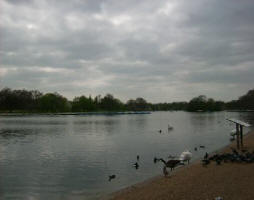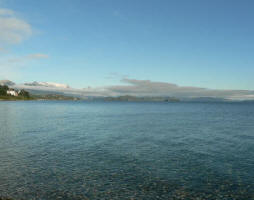 Water efficient seeds to ensure global food security
Water efficient seeds to ensure global food security
Scientists in the UK have found a new way to produce water efficient seeds that they claim will help plants cope with drought resistance, thereby contributing to global food security. The research was partially supported by the PHARMA—PLANTA ('Recombinant pharmaceuticals from plants for human health') project, which clinched EUR 12 million under the 'Life sciences, genomics and biotechnology for health' Thematic area of the EU's Sixth Framework Programme (FP6).
The need to breed plants that are drought resistant is becoming ever more necessary as the impact of climate change makes itself felt around the world and drought becomes a problem in an increasing number of countries, including those not traditionally seriously affected by the phenomenon. A research team at the University of Warwick's School of Life Sciences led by Dr Lorenzo Frigerio has made steps towards helping to tackle this problem by examining two proteins that are members of the large family of Major Intrinsic Proteins (MIPs). These are widespread among living organisms and are known be involved in water uptake.
As a member of the PHARMA—PLANTA project, Dr Frigerio investigated the plant endomembrane system, and it was in relation to this work that compelled him to think about the molecular mechanisms described in this latest study. His work is 'an excellent example of how concepts born from one path of work can impact completely new areas of science,' comments PHARMA—PLANTA coordinator Julian Ma of St. George's, University of London in the UK.
The first of the protein types they examined were plasma membrane (PM) intrinsic proteins (PIPs). Because they are normally found on the outer covering of a cell, PIPs have generally received most attention from researchers as the probable prime gatekeepers of the water transport into and out of cells.
Dr Frigerio’s team therefore focused their research on a second group of proteins known as Tonoplast Intrinsic Proteins (TIPs). The tonoplast is the membrane that surrounds structures inside the cell called vacuoles. Although the TIPs appear to be able to govern water uptake, the fact that they are concentrated in the tonoplast has reduced researchers’ interest in their role in water uptake. This is because the tonoplast itself is generally not considered to present a major problem for intracellular water flow as its water permeability is thought to be much higher than that of the outer plasma membrane.
Scientists in this latest study succeeded in reversing this position by producing the most complete plant TIP expression map produced to date. The map reveals that TIPs do play a role in water management in seed maturation and germination. Indeed, the researchers found that they probably play the crucial water management role, as PIP was almost literally nowhere to be seen.
After studying microarray datasets, the research team found that out of 13 PIPs encoded by the Arabidopsis genome, only 3 seemed to be detectable in their seeds. They also discovered that those 3 PIPs did not show up until 60 hours after germination, hence only after the end of the most important phases of water uptake in a germinating seed. In contrast the researchers found that very high levels of TIP3 protein appeared to be present in the plasma membrane during seed development and germination.
Dr Frigerio believes that TIP3, besides residing in the tonoplast, is recruited to the plasma membrane to compensate for the absence — or very low concentration — of PIP. 'We are now on the right path to build a real understanding of how water uptake is regulated in seed development and germination,' according to his team. 'That understanding will help researchers produce seeds to meet the challenges of global climate change, and food security through improved drought resistance and increased water use efficiency.'
| Contact information | n/a |
|---|---|
| News type | Inbrief |
| File link |
http://ec.europa.eu/research/infocentre/article_en.cfm?id=/research/headlines/news/article_11_04_13_en.html&item=Infocentre&artid=20833 |
| Source of information | EC DG Research |
| Keyword(s) | EU-INCO-MED, FP6 |
| Subject(s) | RISKS AND CLIMATOLOGY , WATER DEMAND |
| Geographical coverage | n/a |
| News date | 20/04/2011 |
| Working language(s) | ENGLISH |
 you are not logged in
you are not logged in





